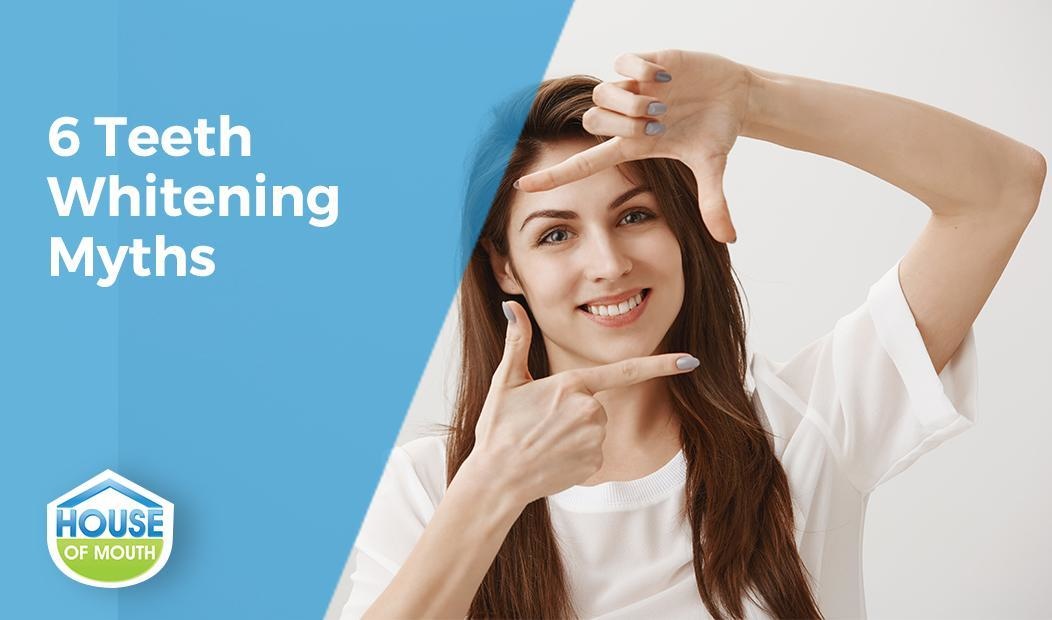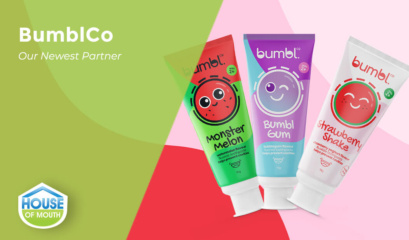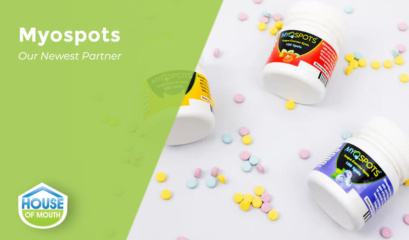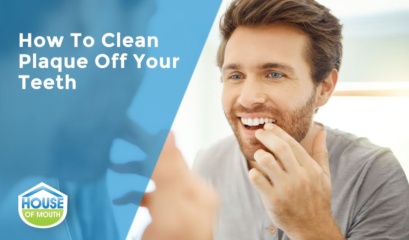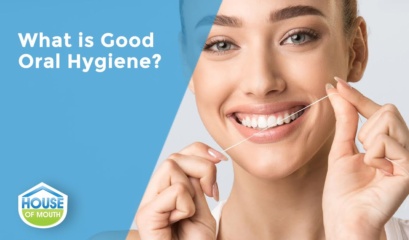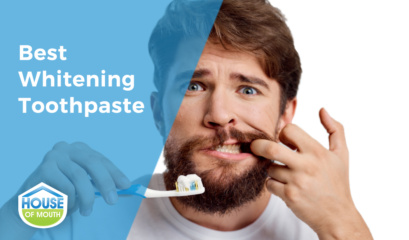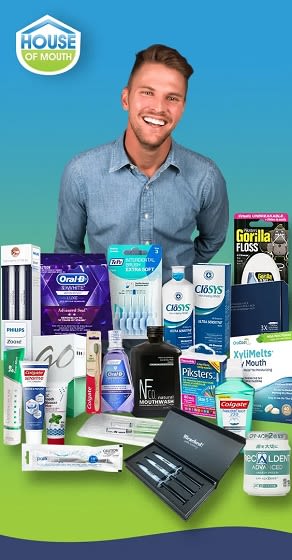More than ever, everyone wants a set of beautiful, healthy, and white teeth, and with that comes many teeth whitening myths and facts! We cover some here.
With so many teeth whitening products and home remedies available, it can be challenging to know what to believe (or not). Above all, as teeth whitening is a highly individualised procedure, it’s essential to understand what is correct and true and what is not. That’s why we have broken down and explained 6 common Teeth Whitening Myths and Facts.

Myth 1: Using a Higher Strength Gel Gets Better Whitening Results
Verdict: incorrect
Many people believe using a higher-strength whitening gel will provide better results. This is in fact false. The primary difference between ‘higher’ and ‘lower’ strength whitening gels is the amount of active ingredient contained within them, that is, the ingredient that whitens your teeth. Whilst it’s easy to assume a higher strength product will provide better results. Usually, the primary difference is the wear time or time taken to complete the procedure. For comparison, a 14% Hydrogen Peroxide Gel is usually worn for about 15mins whereas 6% Hydrogen Peroxide Gel is worn for 30-60mins, providing similar results and longevity. However, the 14% gel requires a significantly shorter wear time meaning the whitening process is quicker but not necessarily better.

Myth 2: Teeth Whitening Damages the Enamel
Verdict: some merit
There is some merit to this myth. The truth is that cheaper teeth whitening products and procedures may whiten your teeth but can also damage your teeth and cause significant oral problems, including mouth ulcers, chemical burns, and risks associated with ingesting harmful chemicals. Cheaper options often contain untested, highly acidic, or abrasive ingredients, which can lead to various problems. These products are usually available to anyone without advice.
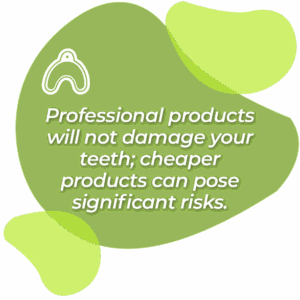
However, seeking advice from a dental professional and using a professional-grade product or procedure will not damage your teeth. Professional products are safe as they have been clinically trialled and tested, and they’ve undergone stringent quality control standards. Most professional products contain additional ingredients, including Fluoride, Potassium Nitrate, and Calcium Phosphate, to strengthen your teeth, prevent decay, and manage sensitivity whilst whitening. These products gently open the pores in your teeth to allow the whitening gel to lift the shade of your teeth and result in safe, longer-lasting whitening results.
Explore our range of professional Teeth Whitening Gels and Teeth Whitening Kits, or contact us today to speak with a Dental Professional to discuss your individual needs.

Myth 3: Home Teeth Whitening Remedies
Verdict: Mostly Incorrect
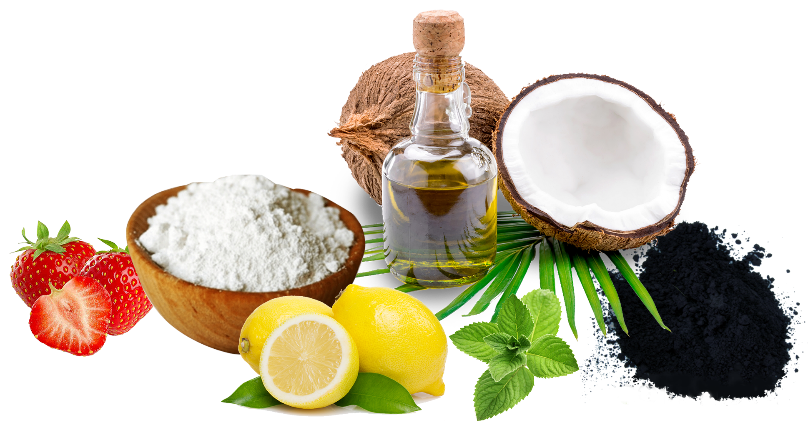
To best understand this, it is important to understand the difference between teeth whitening and teeth bleaching. The terms are often used loosely and confused with one another.
Teeth whitening is a process that lightens the shade of the teeth using a particular product or commonly home remedies. On the other hand, teeth bleaching uses a process of oxidation, i.e., an ingredient to actively remove stain or discolouration from deep within the teeth.
Overall, tooth bleaching provides longer-lasting results as this process gently opens the pores of teeth allowing the ingredients to safely lift away deep stains and penetrate the tooth enamel.
Conversely, teeth whitening lightens the shade of the teeth quickly, but long-term results are mediocre, meaning the process will need to be completed regularly to maintain the lighter colour.
There are many home remedies that may whiten your teeth temporarily; however, these can pose significant risks to your teeth and will not usually provide long-lasting results unless you complete the process regularly.
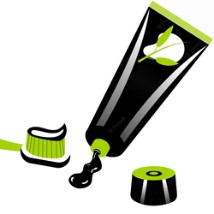
Charcoal teeth whitening
There are many charcoal products that claim to whiten your teeth. Activated charcoal can bind to toxins and remove them from your body. Some charcoal products may improve the colour of your teeth; however, there are currently no studies that back or support this as a safe, effective long-term whitening option. In fact, experts have warned against using activated charcoal due to its abrasiveness and ability to erode the enamel.

Acidic fruits for teeth whitening
Whilst very popular, there is no scientific evidence indicating these remove stains from your teeth. In some cases, this may pose more harm than good, particularly when using acidic fruits which are low in pH and can lead to dental erosion.
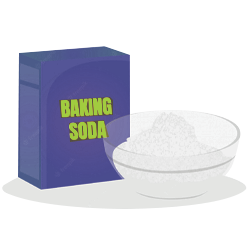
Baking soda teeth whitening
Although used traditionally to clean the teeth before the time of toothpaste, there is little scientific evidence indicating baking soda is a safe tooth whitening remedy. Unfortunately, baking soda cannot fight decay or kill bacteria that cause gum disease and can, in fact, damage your teeth and gums if not used correctly.

Coconut Oil Pulling
The process of coconut oil pulling is an ancient tradition, and in recent years, the method of oil pulling or using coconut oil-based oral care products to whiten teeth has become very popular. Although the idea behind coconut ridding the mouth of bacteria sounds enticing, there is no scientific proof that this method will clean or whiten your teeth. Besides, holding a mouthful of coconut oil for several minutes isn’t the most fun of experiences anyway.

Myth 4: All Whitening Kits Will Whiten My Teeth
Verdict: Incorrect
So, with products claims like: “achieve 8 shades whiter in two sessions”, “whiten in just 10 minutes”, “my teeth are 4 shades whiter after one session”, and “it works for Kim K, so it’s going to work for me” it’s easy to get caught up in the hype and believe your Instagram, Facebook, and Tik Tok feeds. Simply put, don’t! Yes, these products may whiten some people’s teeth but not all – and more importantly, maybe not yours!
Why? Although often marketed in this way, not all teeth whitening kits can whiten everyone’s teeth. There are a variety of reasons why your teeth will or will not whiten, and truthfully speaking, there is a portion of the population who simply are not ideal whitening candidates, meaning whatever product or procedure is used, their teeth may not whiten.

These products and companies do not advertise this and lead you to believe no matter who you are; you will achieve similar results. This can result in you spending decent money with very little or no results, and usually, there is no professional follow-up or advice as to where to go next. More than likely, this will result in reaching for the next product, achieving similar results and repeating this in the hope to find something that actually ‘works’.
Remember, regardless of the kit or procedure chosen, teeth whitening is a gradual process and realistically speaking, most people only bump up 2-4 shades whiter. Some will achieve better results, and some may achieve less. Again, this emphasises how individualised teeth whitening is and drives home the importance of choosing a product or procedure which is best suited to you, which should always start with a conversation with a professional. Contact us today, and we’ll happily help you select a product for your needs.

Myth 5: Avoid Teeth Whitening If You Have Sensitive Teeth
Verdict: Incorrect
Just because your teeth are sensitive doesn’t mean you should miss out on the benefits of teeth whitening. If your teeth are sensitive, there are a variety of options or approaches that can be taken should you wish to whiten your teeth. In some cases, using a lower strength peroxide or peroxide-free gel will help to gently whiten your teeth gradually whilst minimising sensitivity. Adopting our Tips for Managing Sensitivity whilst whitening will help control sensitivity from the outset and provide you with the opportunity to pursue a confident smile. Sensitivity can arise from various reasons, and it’s always important to discuss your situation with a professional before using a whitening product should your teeth be sensitive. Reach out, and one of our friendly whitening experts will happily guide you in the right direction.
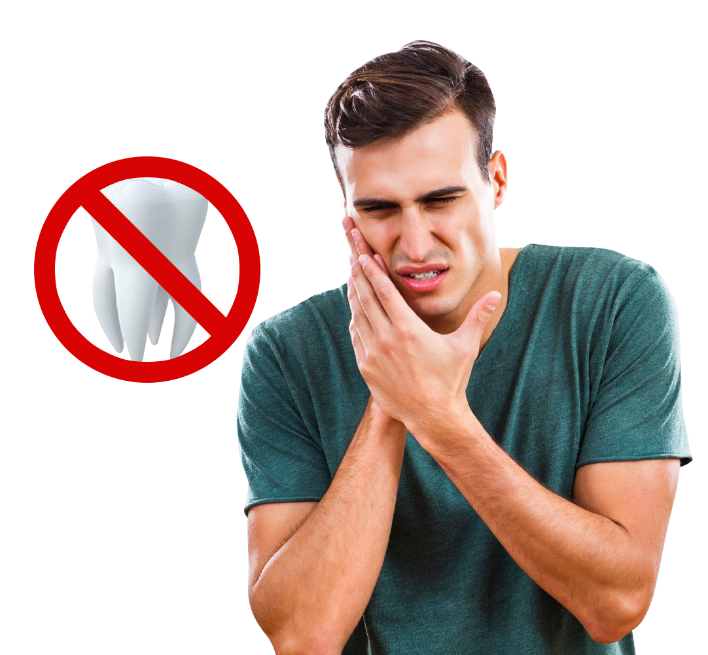

Myth 6: Once Whitened My Teeth Will Remain White
Verdict: Incorrect
As much as we would like this to be the case, it isn’t! No matter the tooth whitening product or procedure used, your teeth will require continued maintenance or topping up over time. Once you have whitened your teeth initially, they will be whiter than they were originally; however, over time, certain factors, including foods, drinks and smoking, can cause staining and discolouration to accumulate on the teeth – and we’ve already covered the other dos and don’ts of teeth whitening. Therefore, we generally suggest topping up with 1-4 home whitening treatments using a professional grade tooth whitening gel and Custom Fit Trays every 1-4 months to maintain your bright white smile.
Teeth Whitening Products and Advice
Despite current trends and just because someone claims something will work, this does not necessarily mean it will work for you. Teeth Whitening is a highly individualised procedure, and the option you choose should fit your personal requirements and goals. Always discuss your options and have your questions answered first by a Dental Professional. For the safest and most effective results that will provide long-lasting results, always use a professional product that has been tested and trialled to be both safe and effective. Contact Us today to discuss your individual needs and to get started on your tailored journey to a whiter, brighter smile.
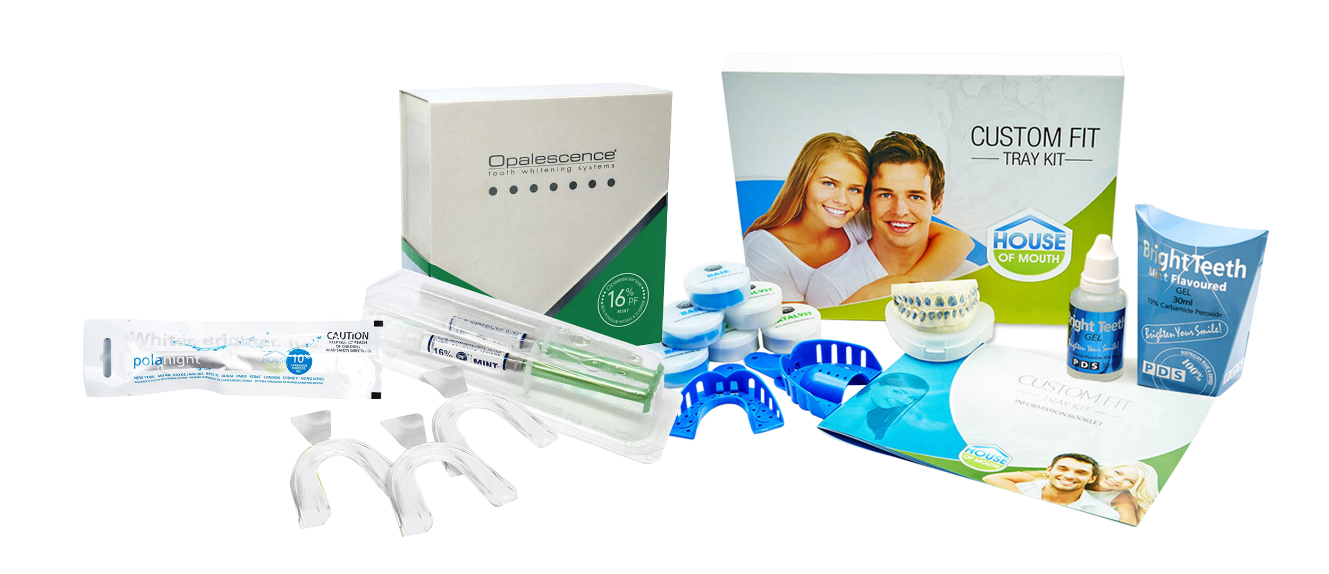
The House of Mouth provides a large range of handpicked professional-grade teeth whitening and oral care products; recommended, used, and sold by dental practitioners worldwide. We offer only the highest quality products, backed by research, used by millions, and most importantly, that work! Explore our Range of Teeth Whitening Gels, Starter Kits, and Custom Whitening Tray Packages.
Ready to start or rejig your teeth whitening routine? Have your questions answered and discuss your options with a Dental Professional. Contact Us today. We’re here to help!


